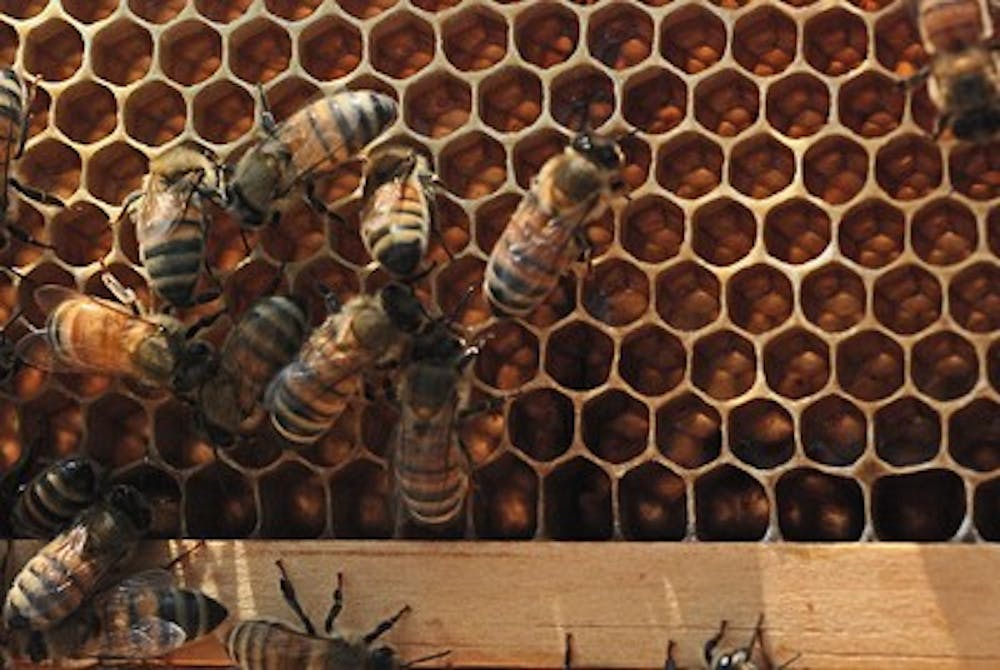Runny noses, watery eyes and embarrassingly loud sneezes could be a thing of the past for Auburn students with a sweet tooth.
Local honey is becoming an increasingly popular way for people to prevent the symptoms of allergies.
"I have terrible allergies this time of year," said Ben Pryor, a senior in human resources.
Though many college students use prescription medicines to treat allergy-related symptoms every spring and summer, people have been using honey for thousands of years as a natural cure for allergies.
"Honeybees are one of the oldest insects mankind has had interaction with," said Ben McGehee, local beekeeper and honey salesman. "In the honey, there's a little bit of pollen from all the plants the bees visit," McGehee said. "If you take it every day, your body builds immunity to those allergens."
McGehee said he personally does not have pollen allergies, but many of his customers swear that his honey has helped alleviate their symptoms.
Some, he said, even were able to stop taking their prescription medicines in favor of using honey as a remedy.
"In my classes, we learn about all the different types of prescription allergy medicines," said Anne Poundstone, a junior in pre-pharmacy. "Honey can definitely be a great natural way to treat those symptoms."
To get his honey from the hives to the jar, McGehee said he puts together a wax foundation to slide into the hives.
This is what the bees build their honeycombs on.
Once he takes the foundations out of the hives, he puts them into an extractor which spins at 700 rotations per minute and draws the honey to the outside of the machine. He is then able to draw the honey through a spout and into jars.
"My honey comes out of the comb, straight to the jar," McGehee said. "That's all that's ever done to it. They homogenize and heat (grocery store honey). This takes out all the pollens and minerals. When they get done with it, it's no better for you than sugar, which has no nutritional value."
Using honey as a remedy is not a quick fix, though.
"It's not like an aspirin," McGehee said. "It won't help you tomorrow. It could take between four and six weeks."
This ancient remedy is not sold in stores, however.
"Our health regulations would say we have to go through the same process as people who can fruits and vegetables, and that's just not necessary with honey," McGehee said.
He sells his local honey at the ag market on Thursdays for $4 per 12 oz. "honey bear" containter.
He also sells pints for $6 and quarts for $10.
Do you like this story? The Plainsman doesn't accept money from tuition or student fees, and we don't charge a subscription fee. But you can donate to support The Plainsman.





